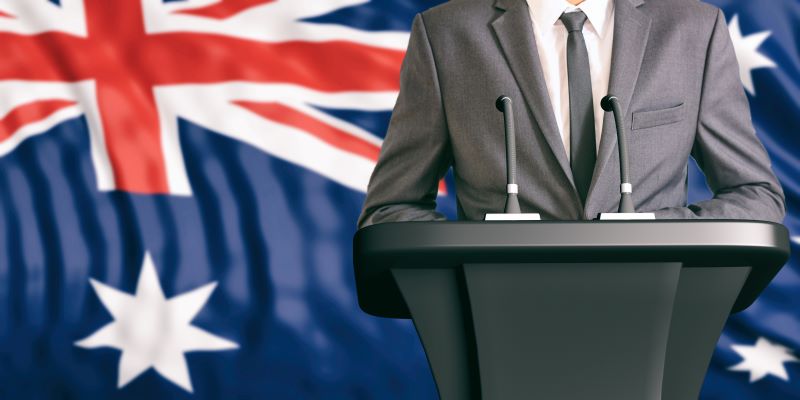10 May 2023

Australian Federal Budget 2023-24
May 2023 - Article provided by PSK's Chief Investment Officer Chris Lioutas.
The Federal budget was handed down last night by the new Labor government with Treasurer Jim Chalmers and his government heralding in a shock budget surplus of $4.2 billion whilst also surprisingly showing some fiscal restraint, which will help the RBA’s inflation fight.
The $4.2 billion surplus is an impressive turnaround and follows last year’s significantly improved deficit of $32 billion. By 2025-26, the net debt estimate will be $102 billion lower. Both parties will no doubt quibble about who claims the honours, but neither really should. The fiscal consolidation that occurred under the previous government was simply a function of turning off spending that had been so easily turned on. The budget surplus under the new Labor government was largely a function of high commodity prices, strong company tax receipts, and a strengthening labour market that resulted in higher income tax receipts and less welfare payments.
However, longer-term forecasts for the budget and government debt remain worrying with big decisions to be made ahead – options include:
- the government continues to show restraint which will mean tough decisions in curbing significant expenditure ahead; (unlikely)
- the government spends big to secure their voter base which means significant tax increases in the period ahead to fund that spending; (likely)
- the government does nothing, the economy rights itself, and the government claims responsibility for the win (possible)
That’s all a conversation for another day. Overall, it’s unlikely any of the budget measures announced will significantly impact markets.
Key take-aways include:
- $9.5 billion increase in welfare (increases to the dole, single parent payments, and rental assistance)
- $1.5 billion one-off energy bill discounts (to be matched by the states)
- $3.5 billion to lower cost of going to the doctor
- Inflation forecast to fall from 6% this year to 3.25% in the next financial year and 2.75% the financial year after that
- Unemployment forecast to rise from 3.5% to 4.5%
- Economic growth forecast to slow from 3.25% this year to 1.5% next year
- Forecast deficit of $13.9 billion next year, growing to $36.6 billion in 2025-26, with deficits out to at least 2033-34.
- Gross debt to reach $1.02 trillion by 2025-26, approximately 36.5% of GDP, net debt to reach $703 billion by 2026-27 (big numbers, but low by global standards)
The winners include:
- Single parents – extra payments until their youngest is 14yo; parents can earn more while receiving the full payment
- Low-income households – energy bill relief, funding for solar panels or double-glazed windows, GPs paid more to encourage more bulk billing, and JobSeeker payment increases
- Small businesses – write-off value of up to $100,000 in total expenditure plus a new bonus deduction for equipment up to $20,000, tax deductions of up $20,000 for investment in energy efficient equipment, one time reduction to their power bills and 20% deduction to electrify cooling and heating systems
- Aged care workers – pay rise for aged care workers
- First home buyers – extension of the scheme to allow any two people (including siblings and friends) to purchase a first home and allows access to non-first home buyers who haven’t owned a home for 10 years
- Renters – rental payment assistance increased
- Skilled migrants – higher income threshold, increased visa processing capacity and expanding pathways to permanent residency for temporary skilled workers
- Tertiary students – additional 300,000 TAFE and vocational education training places, 4,000 new university spots opened in STEM industries
- Defence personnel – bonuses offered to those ending their period of service to encourage them to stay on
- Public service – more funding to increase highest headcount ever (up 15% since the start of covid)
The losers include:
- Superannuation and tax dodgers – clamp down on businesses not paying super and avoiding GST, and those avoiding income tax
- Smokers and vapers – excise on tobacco to lift
- Consultants to the government – reduction in use of consultants
- Superannuants – earnings on superannuation balances greater than $3 million to be taxed at 30% from July 2025 (up from 15%), $3m cap not indexed
- Scammers – fighting scammers and online fraud
- Travellers – travellers leaving Australia hit with additional $10 increase to exit charge ($60 up to $70), visitors and temporary workers hit with increased visa application charges
- Truckies – heavy vehicle road user charge rate to increase
- Big gas polluters – tax deductions capped and tougher tax compliance measures
.jpg)
.jpg)
As always, if you have any questions or your personal circumstances have changed please do not hesitate to contact your financial adviser.
General Advice Warning - Any advice included in this article has been prepared without taking into account your objectives, financial situation or needs. Before acting on the advice, you should consider whether it’s appropriate to you, in light of your objectives, financial situation or needs.
